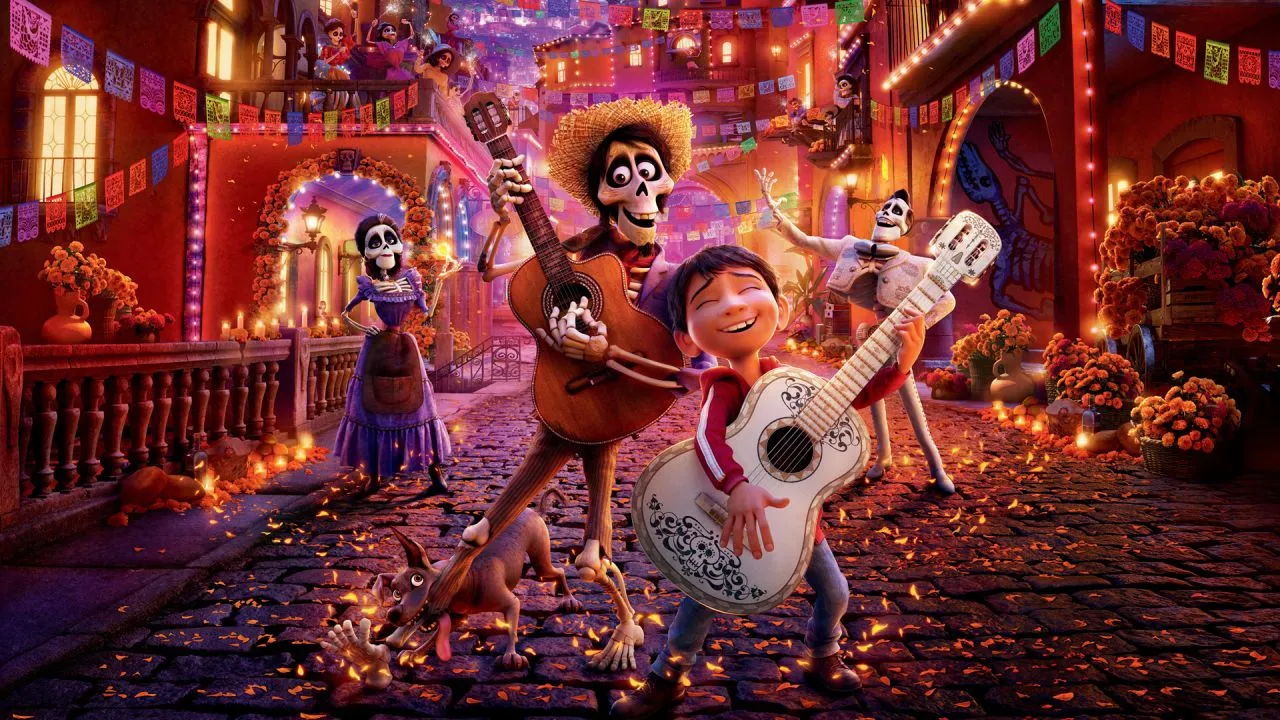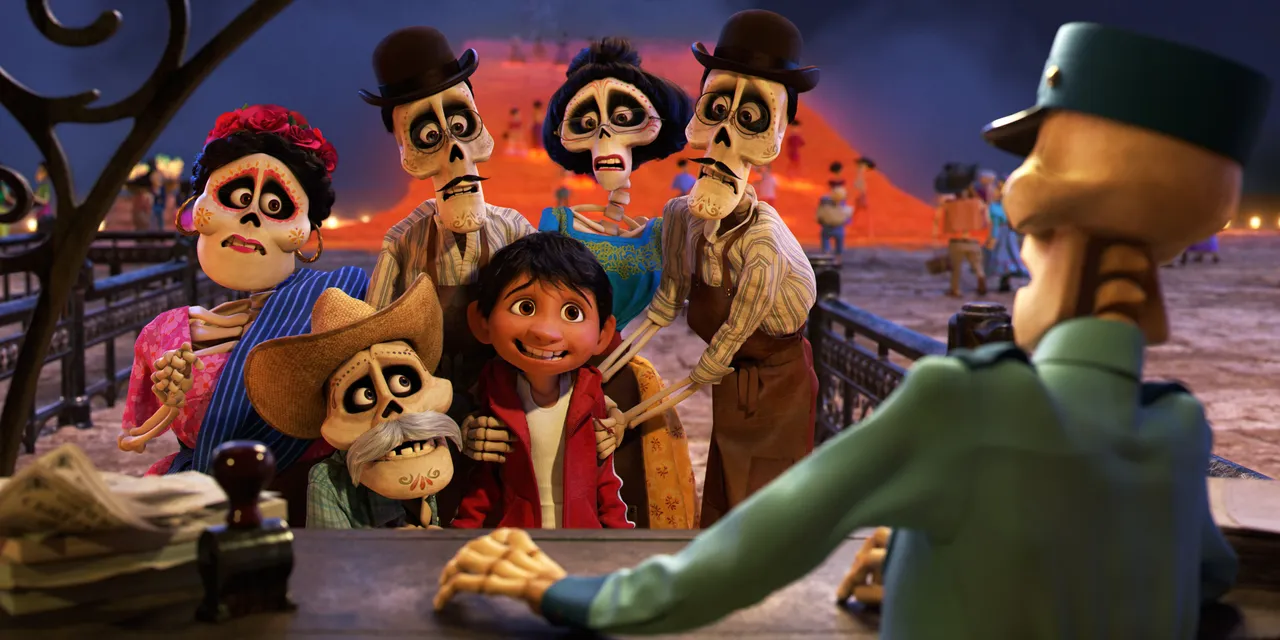
Coco is an upsetting work of beautiful creativity.
Set in modern-day Mexico, it tells the story of a young boy called Miguel who wants to be a musician, but is BANNED by his family on account of them not liking music. They are directly responsible for his subsequent transportation to the Land of the Dead, an exquisite realisation that forms the backdrop to Miguel’s character arc.
Miguel has to enlist the help of his dead family (who are skeletons) to return to the living world. This involves action, japes and a mysterious, dead musical idol.
It also involves child abuse on an epic scale.
Praise
I have no interest in completely poo-pooing Coco. My god, the technology and artistry that Pixar has cultivated in the 22 years since Toy Story is spellbinding. Preceding the feature was a short behind-the-scenes look at just one of the stunning vistas created by the team. As Arthur C. Clarke once noted: “Any sufficiently advanced technology is indistinguishable from magic.” Coco is a great example of that.Huge credit must also be given to the faithful, respectful representation of the Mexican festival Dia De Los Muertos (the Day of the Dead). As an Uber driver, I was lucky enough to discuss this at length with a charming Mexican passenger called Ricardo, only yesterday. I have had some long trips and many engaging riders, but it’s rare to have both of these together.
Ricardo told me that Coco is revered in Mexico for its accurate depiction of Dia De Los Muertos. He also told me something special: the festival is vigorously opposed by the Catholic church due its reliance on altars to figures other than Jesus/God/Holy Ghost. Given that Mexico is a deeply Catholic country, many citizens—particularly in the more religious rural areas—struggle to rationalise this belief system. But Dia De Los Muertos is an unshakeable tradition, and it sustains.
Hearing this from Ricardo, I became conscious that I had indeed questioned that religious paradox while watching Coco. I had quickly dismissed it to focus on the narrative, but I now appreciated the festival with a fresh brain. What a lovely thing, I thought. Keeping loved ones’ memories alive by celebrating them every year. Effectively breaking bread with lost companions.
This, however, is where the narrative began to crack.

Criticism
Remembering loved ones is great. But how about remembering ‘loved ones’—ones that we are commanded to love?Traditional families often stifle and abuse their children, conditioning them to conform to irrational societal norms. Chief among these is respecting your elders.
Coco appears to want to reconcile the story of a boy whose autonomy is crushed by his family. A boy who is bullied and disrespected. The correct conclusion to this storyline is for them to realise Miguel’s inherent value as a human being. Devastatingly, this never happens. Or, more accurately, it happens only on their terms.
A great story, in my opinion, is one where there is a broken sense of normality, then issues are raised, then those issues are tied off, or in some way explored for the advancement of joy or enlightenment. While many of Coco’s subplots are neatly resolved (as is acceptable in a mainstream children’s film), the central plot is smeared around the digital canvas with unforgivable disdain.
Without giving too much away, in act one Miguel is abused in the most spirit-crushing way—something that is never truly atoned for. Miguel’s inherent value is never respected by his living family. His value is only respected in the context of how he manages the emotions of his elders. And that, my dear readers, is abuse.

Conclusion
When I presented this data to Ricardo, he agreed that I had seen a dark heart to Coco he had overlooked. For all the beautiful goodness the film captures, the most important message is thrown away like a piece of old rubbish. The ostensible happy ending was not so happy to me.In even more basic terms, I only watched Coco because my friend wanted to. He sent me the trailer, which I found underwhelming and boring. Maybe the film’s true heart was more subversive than the trailer suggested. It was not. It was exactly as I had expected.
A couple of years ago, Pixar made one of the best, most insightful, most paradigm-shifting films of the decade: Inside Out. For some reason they have regressed. Coco is aesthetically and philosophically beautiful, but morally bankrupt. It’s an insult to the concept that family is meant to love unconditionally.
In the words of Massive Attack: “Love, love is verb. Love is a doing word.” Let’s try to remember this.
Thanks for reading.